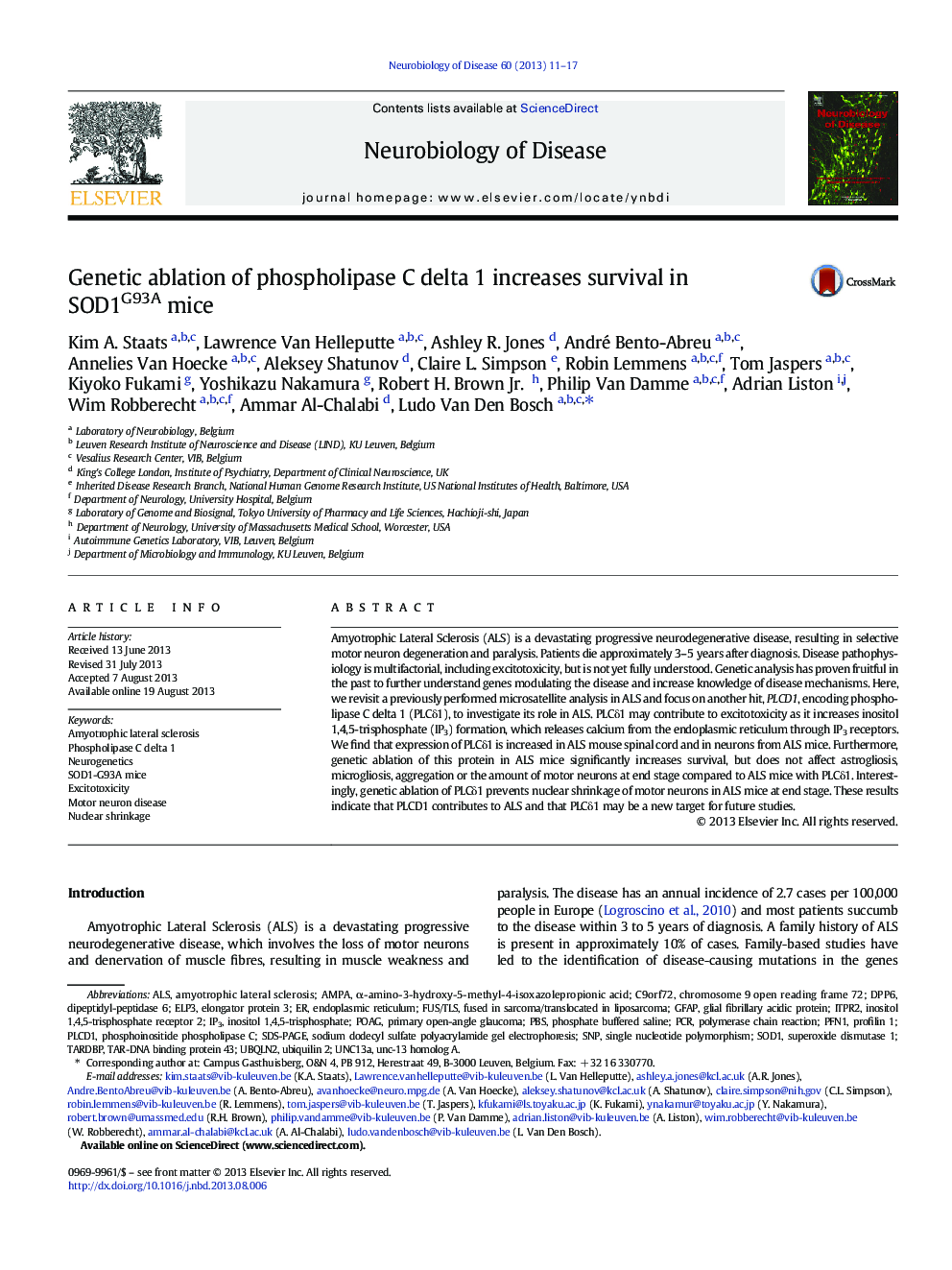| Article ID | Journal | Published Year | Pages | File Type |
|---|---|---|---|---|
| 6022137 | Neurobiology of Disease | 2013 | 7 Pages |
Abstract
Amyotrophic Lateral Sclerosis (ALS) is a devastating progressive neurodegenerative disease, resulting in selective motor neuron degeneration and paralysis. Patients die approximately 3-5 years after diagnosis. Disease pathophysiology is multifactorial, including excitotoxicity, but is not yet fully understood. Genetic analysis has proven fruitful in the past to further understand genes modulating the disease and increase knowledge of disease mechanisms. Here, we revisit a previously performed microsatellite analysis in ALS and focus on another hit, PLCD1, encoding phospholipase C delta 1 (PLCδ1), to investigate its role in ALS. PLCδ1 may contribute to excitotoxicity as it increases inositol 1,4,5-trisphosphate (IP3) formation, which releases calcium from the endoplasmic reticulum through IP3 receptors. We find that expression of PLCδ1 is increased in ALS mouse spinal cord and in neurons from ALS mice. Furthermore, genetic ablation of this protein in ALS mice significantly increases survival, but does not affect astrogliosis, microgliosis, aggregation or the amount of motor neurons at end stage compared to ALS mice with PLCδ1. Interestingly, genetic ablation of PLCδ1 prevents nuclear shrinkage of motor neurons in ALS mice at end stage. These results indicate that PLCD1 contributes to ALS and that PLCδ1 may be a new target for future studies.
Keywords
IP3UNC13aubiquilin 2ITPR2fused in sarcoma/translocated in liposarcomaUBQLN2Pfn1DPP6POAGTARDBPSOD1C9orf72PBSGFAPAMPAFUS/TLSinositol 1,4,5-trisphosphateamyotrophic lateral sclerosisα-amino-3-hydroxy-5-methyl-4-isoxazolepropionic acidSDS-PAGESodium dodecyl sulfate polyacrylamide gel electrophoresisexcitotoxicityALSmotor neuron diseasesuperoxide dismutase 1endoplasmic reticulumPhosphate buffered salineProfilin 1Neurogeneticspolymerase chain reactionPCRGlial fibrillary acidic proteinSingle nucleotide polymorphismSNPchromosome 9 open reading frame 72primary open-angle glaucoma
Related Topics
Life Sciences
Neuroscience
Neurology
Authors
Kim A. Staats, Lawrence Van Helleputte, Ashley R. Jones, André Bento-Abreu, Annelies Van Hoecke, Aleksey Shatunov, Claire L. Simpson, Robin Lemmens, Tom Jaspers, Kiyoko Fukami, Yoshikazu Nakamura, Robert H. Jr., Philip Van Damme, Adrian Liston,
